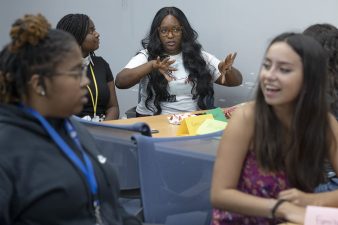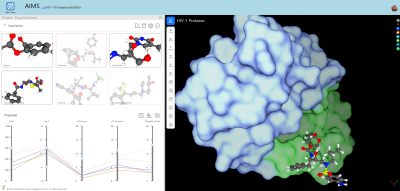Get in the GROOVE!
Project Website(s)
-
Abstract
“Get in the GROOVE!” will address health disparities impacting underserved youth as well as the national need to cultivate diversity in preparing the next generation of health professionals. Given the alarming rate of overweight and obesity among high school minority youth the project will focus on middle school with the primary aim of reaching middle school girls before unhealthy habits become firmly ingrained. The project brings together the research and informal science education community in an innovative effort to contribute to the knowledge base with regard to the impact of informal learning environments as a delivery system for communicating key health messages to diverse populations and explore the use of virtual world technology as a vehicle for motivating interest in learning how a healthy diet and physical activity can impact an individual’s well-being throughout life. The specific objectives are to: 1) to develop science-rich health education resources for middle school students that motivate interest in adopting a healthy lifestyle; 2) to increase middle school students’ awareness of and interest in nutrition and physiology related STEM career pathways; 3) increase parental awareness within the family cultural context of the importance of good nutrition and physical activity for children’s health; 4) to investigate in a mulicenter randomized controlled trial (conducted at the Miami Science Museum and the New York Hall of Science) the extent to which a 3-D virtual world environment explored in an informal museum setting produces gains in middle school students’ self-efficacy health knowledge and readiness for positive behavior change; and 5) to broadly disseminate the evaluated program results and research findings to the global community of health informal science education and K-12 research communities. The evaluation plan will document the impact of the GROOVE program to engage students in the study of nutrition and physical activity and enhance their conceptual understanding of the importance of nutrition and activity to their overall health. If successful this approach will advance the field through rigorous evaluation of the use of virtual world simulations as a learning tool contribute to the research base of the impact and the value of informal education environments to serve underrepresented youth and could transform science education by simultaneously stimulating interest in science while promoting healthy behavior in youth.
Project Audience
k-12





